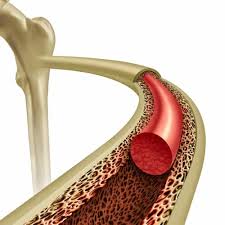
The Paramount Importance of Early Diagnosis in Healthcare
The cornerstone of effective healthcare management and disease control lies in the principle of early diagnosis. This approach not only enhances the efficacy of treatment but significantly contributes to the overall improvement of patient outcomes. In the vast and complex landscape of healthcare, early detection of diseases plays a pivotal role in preventing disease progression, reducing mortality rates, and minimizing the economic burden on healthcare systems. This article delves into the critical importance of early diagnosis, its impact on various health conditions, and how it shapes patient care and treatment strategies.
The Essence of Early Diagnosis
Early diagnosis refers to the timely identification of diseases or conditions before they progress to more severe stages. It involves screening and diagnostic tests that detect diseases at an initial stage, often before symptoms become apparent. This proactive approach allows healthcare professionals to implement immediate interventions, significantly altering the disease's trajectory.
The benefits of early diagnosis are manifold, encompassing improved survival rates, enhanced quality of life, and reduced healthcare costs. Early detection of chronic conditions such as cancer, heart disease, and diabetes can lead to treatments that are less invasive, more effective, and often less costly. Furthermore, it provides individuals with the opportunity to make lifestyle adjustments that can halt or slow the progression of diseases.
The Impact of Early Diagnosis on Disease Management
Cancer: A Case in Point
In the realm of oncology, early diagnosis stands as a beacon of hope. Cancers detected at an early stage often require less aggressive treatments and have significantly higher survival rates. For instance, early-stage breast cancer has a five-year survival rate of nearly 100%, compared to late-stage cancer, which dramatically drops to 27%.
Chronic Diseases and Early Intervention
Chronic diseases such as diabetes and hypertension exhibit minimal or no symptoms in their early stages. Through routine screening and monitoring, early diagnosis can prevent complications such as kidney failure, heart disease, and stroke, profoundly impacting patients' longevity and quality of life.
The Role of Technology in Enhancing Early Diagnosis
Advancements in medical technology have been instrumental in the evolution of early diagnostic methods. From sophisticated imaging techniques like MRI and CT scans to cutting-edge genetic testing, these technologies enable the detection of anomalies that were once imperceptible, paving the way for timely intervention and personalized treatment plans.
Global Initiatives and Success Stories
The Investment and Value of Early Diagnosis in Turkey
A notable example of a successful early diagnosis initiative can be found in Turkey. Turkey's Ministry of Health operates Cancer Early Diagnosis, Screening, and Education Centers (KETEM), which, in 2018, provided cancer screening services to over 2 million individuals, significantly increasing early diagnosis rates. This initiative underscores the commitment and value placed on early diagnosis in Turkey, setting a precedent for healthcare systems worldwide.
International Efforts
Globally, organizations like the World Health Organization (WHO) and the Centers for Disease Control and Prevention (CDC) advocate for and support early diagnosis programs. These programs span various diseases, emphasizing the universal need for early detection in healthcare.
Challenges and Solutions in Implementing Early Diagnosis
Access to Healthcare: Access to healthcare services remains a significant barrier to early diagnosis. In many regions, especially in low and middle-income countries, the lack of infrastructure, resources, and awareness hampers the effective implementation of early diagnosis programs.
Public Awareness and Education: Educating the public about the importance of early diagnosis and routine screenings is crucial. Awareness campaigns and community outreach programs can demystify medical screenings and encourage more individuals to participate in regular health checks.
Advancing Personalized Medicine through Genomic Research
In the pursuit of refining healthcare through innovation, Türkiye Sağlık Enstitüleri Başkanlığı (TÜSEB) has embarked on a groundbreaking journey. Starting in 2020, TÜSEB initiated genomic research projects that aim to unravel the complexities of genetic diseases. This endeavor is not only pivotal in understanding the intricacies of such conditions but also lays the foundation for the development of personalized medicine. By analyzing the genetic makeup of individuals, TÜSEB's research is steering the healthcare sector towards more tailored and effective treatment options, marking a significant leap in medical science and patient care in Turkey.
The Role of Genomic Research in Early Diagnosis
Genomic research holds unparalleled potential in the realm of early diagnosis. By identifying genetic predispositions to various diseases, healthcare professionals can anticipate potential health issues and take preemptive measures. This aspect of predictive healthcare is integral to preventing diseases or catching them in their nascent stages when they are most treatable. TÜSEB's commitment to genomic research is thus a beacon of hope for not just improving treatment methodologies but also for enhancing preventive care paradigms, ushering in a new era where medicine is as much about prevention as it is about cure.
Strengthening Healthcare Infrastructure for Early Diagnosis
Enhancing Screening Programs: To complement the strides made in genomic research and early diagnosis initiatives, there is a concerted effort to bolster the healthcare infrastructure in Turkey. Enhanced screening programs, equipped with the latest diagnostic tools and technologies, are being rolled out across the nation. These programs are designed to be accessible and efficient, ensuring that a larger segment of the population can benefit from early detection services. By integrating advanced diagnostic tools with comprehensive screening programs, Turkey is setting a benchmark in proactive healthcare management.
Collaboration and Education: Pillars of Success: The success of early diagnosis programs and genomic research initiatives heavily relies on collaboration among healthcare professionals, researchers, and policymakers. Furthermore, educating the public about the benefits of early diagnosis and the potential of personalized medicine is crucial. Through public health campaigns and educational programs, the aim is to foster a well-informed society that recognizes the value of early health checks and genetic screening. This collective effort not only enhances the effectiveness of early diagnosis programs but also paves the way for a more resilient healthcare system, capable of addressing the diverse needs of the population with precision and empathy.
Healthy Türkiye’s note
The importance of early diagnosis in healthcare cannot be overstated. It is a fundamental aspect that influences treatment outcomes, patient survival, and the overall effectiveness of healthcare systems. Initiatives like those in Turkey exemplify the profound impact of investing in early diagnosis infrastructure and programs. As technology advances and awareness grows, the future of healthcare looks promising, with early diagnosis at its core, ensuring that more lives are saved and the quality of life is enhanced for millions around the world.




